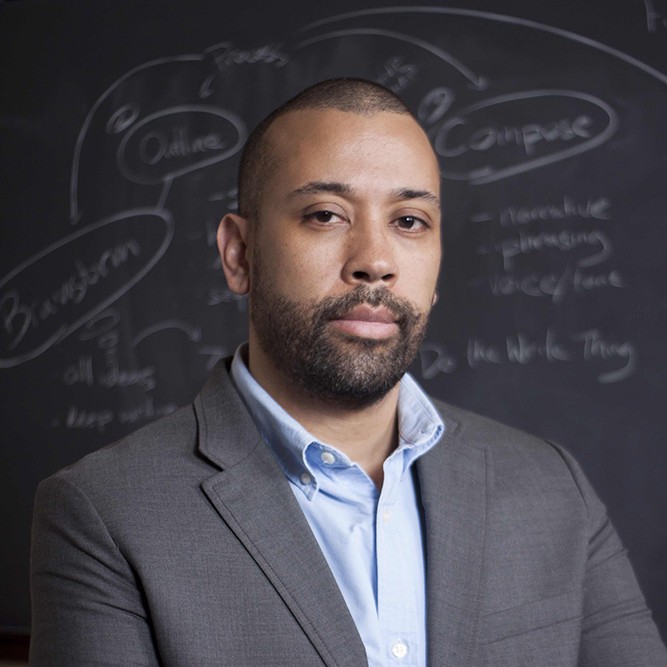
People often ask me how I got into this line of work. The short version is that I know what it feels like to be blocked from educational and professional dreams because you can’t navigate the mysteries of the admissions process. Throughout college, I had dreamed of becoming a history professor, but when I applied to Ph.D. programs during my senior year, I was rejected or waitlisted from every single one. I had strong grades and top-notch GRE scores, but nonetheless I was turned away by even my “safety schools.”
So, I went to law school, did well, and took a position practicing human rights law in Johannesburg, South Africa. Though I loved this work, I still felt that my dream job was working in academia, so I again applied to graduate school- this time to the top 15 history programs in America, plus Oxford and Cambridge. I went 0–17.
Two years later, I was back in America when I had a conversation with my friend Craig about my failed attempt to get into a top Ph.D. program. He seemed confused; I had been an excellent student, had strong letters of recommendation, and good test scores. Why had I been rejected? He asked to see my personal statement, so I emailed it to him and a few days later he replied: “I know why you didn’t get into graduate school. Your Personal Statement sucks.”
“What do you mean it sucks?!?” I asked. I had gotten A’s on every paper I had ever written in college and law school, so I knew I could write.
“Well, look… your grammar is fine, you make some nice points… but YOU… you’re not in it,” Craig replied. “What’s your story? Why do I care about you? What was your struggle? What question are you asking? WHERE ARE YOU?”
Craig was a doctoral candidate at Stanford, so I valued his opinion. He had been where I was trying to go. We talked for an hour about his approach to personal statements and how he used storytelling to engage the reader, demonstrate expertise and maturity, and earn admission into top schools. We talked about structure and tension, what to include, what to exclude, what to emphasize, and what to play down.
So, against my better judgement, I decided to apply to graduate school for a third -and no matter what, FINAL- time. I followed his advice and made myself the hero of my story. I leaned on the hints about pacing and structure that he had provided, pestered him for proofreading and additional tips and tricks, and produced a final draft that followed Craig’s advice and reflected my journey, personality, and aspirations. Frankly, I was skeptical, but I had to accept that my way just hadn’t worked. I hit “send” on my applications, and hoped for the best.
On Valentine’s Day 2003, I got the first email: an acceptance from Cal-Berkeley, a top-5 Ph.D. program in History! I couldn’t believe it. Then, a day later, a got a telephone call from Yale; I’d been accepted into their Ph.D. program with full scholarship plus a stipend. In fact, while I was on the phone with Yale, I received a call from a famous history professor at Columbia University congratulating me on my acceptance into Columbia as well. In the next week, I heard back from Harvard, UCLA, and Michigan. In fact, I had been accepted into 13 of the 14 schools I applied to (ironically, only NYU, my safety school, rejected me), and I ended up attending Yale University, which had the top ranked history program in the world.
Two years later, in order to make some money on the side, I took a position at EssayEdge, which at the time was the largest admissions writing consultancy in the world. I knew that the “Craig Method” had worked for me, but I wondered if it would also work for other kinds of applications: law school, medical school, college, business school, etc. In that first year at EssayEdge, my clients had amazing success and earned admission into the top business schools (Wharton, Harvard Business School, Yale School of Management, University of Chicago…), medical schools (Johns Hopkins, UCSF, UCLA…), and colleges. I was a top performer at EssayEdge, and even though I haven’t completed an order for that company in almost 9 years, they still feature me on their website.
In my 15 years of helping clients get into the top college, graduate programs, and professional schools, I have had to master many of the specific finer points of the different disciplines, but in every case the core concepts of the “Craig Method” still work. In fact, if you list the top programs for nearly every kind of school, I have placed multiple students into each of them because I work to uncover, organize, enliven, and effectively deploy people’s stories.
The great irony is that I learned the “Craig Method” as a means of getting into graduate school so that I could become a professor, but after earning my Ph.D. from Yale and teaching for four years at Harvard, I discovered that what I really love is helping people to take the next step in their educational and professional journeys, so I transitioned full-time into admissions consulting. Hearing from former clients that the work I did helped them get into medical school or from parents who thank me for helping their kid get into an Ivy League college, is truly a blessing.
I know that the application process can be daunting, frustrating, or even terrifying. I’ve been there, and I have failed. But through that failure I learned the insights and techniques for crafting a powerful story, and I want to use these insights to help you take the next step in your educational and professional journey!
That’s our mission at Gurufi.
(for more about Gurufi, check us out online or visit our Facebook page. For questions and inquiries, you can reach Brian directly at service@gurufi.com)
